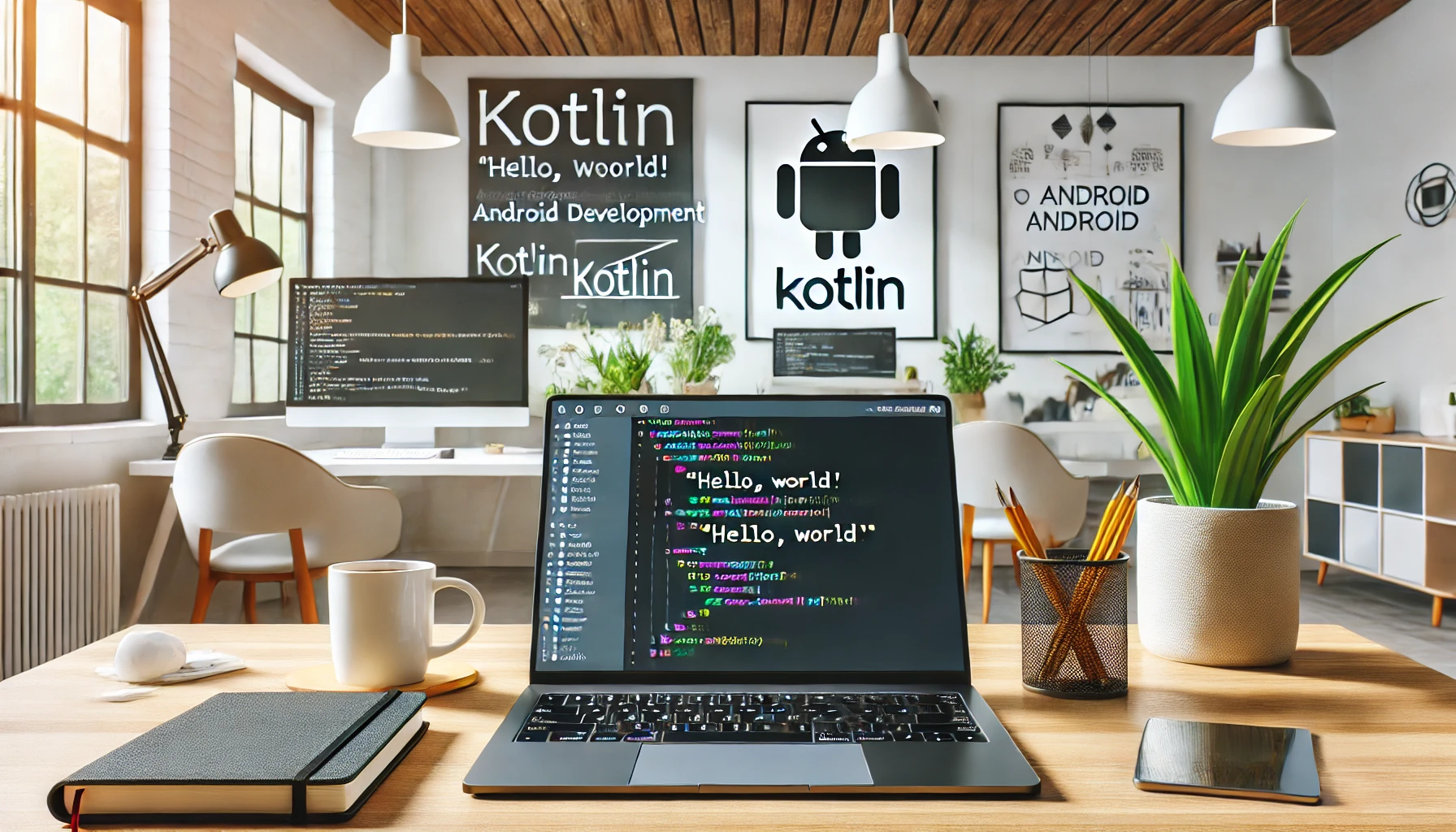
Kotlin is all the rage in the Android development world. But what exactly is Kotlin, and why should you care? In this post, we’ll dive into the basics of Kotlin, understand its features, and walk through some simple examples to get you up and running. By the end, you’ll see why Kotlin has become the go-to language for Android development.
What is Kotlin?
Kotlin is a statically typed programming language that runs on the Java Virtual Machine (JVM) and can be used anywhere Java is used. It was developed by JetBrains, the same folks who created IntelliJ IDEA, one of the most popular integrated development environments (IDEs). In 2017, Google announced Kotlin as an official language for Android development, and since then, its popularity has soared.
Why Choose Kotlin?
Here are a few reasons why developers are flocking to Kotlin:
- Concise Syntax: Kotlin reduces the amount of boilerplate code you need to write. This means you can accomplish more with fewer lines of code.
- Interoperability: Kotlin is 100% interoperable with Java. You can call Java code from Kotlin and vice versa.
- Safety: Kotlin’s type system is aimed at eliminating the danger of null references, which are a common source of bugs.
- Tooling Support: Since Kotlin is developed by JetBrains, it has excellent support in IntelliJ IDEA, Android Studio, and other major IDEs.
Setting Up Kotlin
Before diving into the code, let’s set up our environment:
- Install JDK: Make sure you have Java Development Kit (JDK) installed.
- Install IntelliJ IDEA: Download and install IntelliJ IDEA Community Edition.
- Create a New Project: Open IntelliJ, create a new Kotlin project, and you’re good to go!
Hello World in Kotlin
Let’s start with the classic “Hello, World!” example.
fun main() {
println("Hello, World!")
}This simple program prints “Hello, World!” to the console. The fun keyword is used to declare a function, and println is a standard library function to print text.
Basic Syntax
Here’s a quick look at some basic Kotlin syntax:
Variables
In Kotlin, you can declare variables using val (immutable) or var (mutable).
val name = "Kotlin" // Immutable
var age = 10 // MutableFunctions
Functions in Kotlin are simple to define.
fun sum(a: Int, b: Int): Int {
return a + b
}You can also write single-expression functions.
fun sum(a: Int, b: Int) = a + bClasses
Kotlin makes creating classes easy.
class Person(val name: String, var age: Int)Here’s how you can create an instance of the class and access its properties:
val person = Person("John", 30)
println(person.name) // Output: John
println(person.age) // Output: 30Null Safety
One of Kotlin’s standout features is its null safety. By default, variables cannot be null. If you want a variable to hold a null value, you need to explicitly declare it as nullable using ?.
var nullableName: String? = "Kotlin"
nullableName = nullTo access a nullable variable, you can use safe calls (?.) or the Elvis operator (?:).
val length = nullableName?.length ?: 0Collections
Kotlin provides a standard set of library functions to work with collections like lists and maps.
val fruits = listOf("Apple", "Banana", "Cherry")
val fruitMap = mapOf("A" to "Apple", "B" to "Banana")
println(fruits[1]) // Output: Banana
println(fruitMap["B"]) // Output: BananaConclusion
Kotlin is a modern, expressive, and powerful language that makes Android development more enjoyable and productive. Its concise syntax, interoperability with Java, and focus on safety make it an excellent choice for both beginners and experienced developers.
Ready to give Kotlin a try? Start by setting up your development environment and running the simple examples provided in this guide. Happy coding!
FAQs
Q1: Can I use Kotlin for server-side development?
A1: Absolutely! Kotlin is not limited to Android development; it can be used for server-side development, web applications, and more.
Q2: Is Kotlin difficult to learn for beginners?
A2: Not at all! Kotlin’s syntax is clean and intuitive, making it a great choice for beginners. If you have a basic understanding of programming concepts, you’ll find Kotlin quite accessible.
Q3: How does Kotlin compare to Java?
A3: Kotlin offers more concise syntax, null safety features, and improved type inference compared to Java. It also fully interoperates with Java, allowing you to use existing Java libraries and frameworks.

